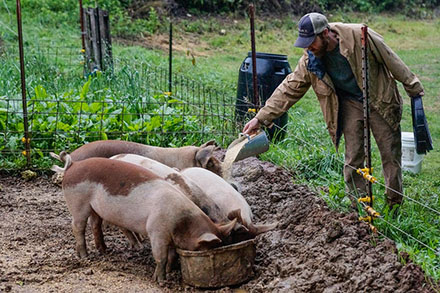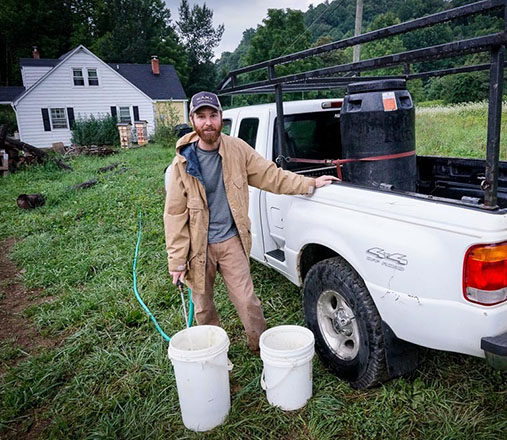The weather might have been chilly but the conference was red hot! What a wonderful trip to the Southern Sustainable Agriculture Working Group’s 2015 Conference in beautiful Mobile, Alabama, last month. I have never been to a conference that had so many rock star farmers in one place, all striving to grow better soils, vegetables and animals.

A conversation about soils is important because that's where real long term profitability starts, literally, the ground level is the best place to get a sense of how well your farm is being managed. As a diversified vegetable farmer and pasture-based meats grower, soil management is central to being able to support my family's livelihood. One of the presenters, Ellen Polishuk of Potomac Vegetable Farm said, "I am here giving talks on soil fertility and money—and that is no coincidence."
Many of the presenters at the conference were pioneers in their respective fields and knew what they were talking about. The conversation was centered on what small, sustainable farmers need to be successful. For me, farming is one of the most dangerous and challenging vocations a person can choose, and we need all the help possible to figure out how to grow better, but also how to be better business people so that the well cared for land can stay in production far after we are gone. Having a retirement strategy is almost unheard in farming, along with adequate health care, but both are necessary to ensure that there will be future productive farms. Many of the classes in the conference talked about strategies to increase production, track financial progress and open new market channels while avoiding enslaving debt in the process.

As a first generation farmer, it has always been challenging to put together a “total package” farm. There are dozens, if not hundreds, of things to balance and keep a diligent eye on. So at the conference when I heard Chris Blanchard’s discussion about setting up independent supervising systems “so that management is not dealing with the latest and loudest problem," I listened closely. He told us to imagine a farm where everyone knew what to do, even at the end of the season, without the need for constant reminders to employees and interns. His suggestions were incredibly simple but resonated with many others and me in a profound way.
Another thing that really struck a chord with me was that most of the presenters, like me, had learned lessons the hard way before they were able to reimagine their farm and work hard to make it happen. It takes hard work every day to curtail a farm that might be out of control with weeds or financially struggling to turn a profit. Just showing examples of how changing small things can make a big difference was helpful in gaining perspective into other farms’ operational challenges and triumphs. Taking a step back is hard to do in the heat of summer, but through off-season planning and organizing, next year could be many folds better.
It comes down to making a choice. There's no magic bullet or "game changer" piece of equipment out there; it comes down to putting in the right kind of work and rolling with the ebbs and flows that every season is bound to bring.
This conference inspired me to be a better farmer day in and day out. I want to thank Heifer for supporting me, Against the Grain Farm and our farmer collective Raised Right Meats. Through education and inspiration so many small things can be overcome. Sometimes all it takes is getting back in the furrow with a new attitude and a fresh perspective. That's my big take away from SSAWG this year!
Story by Andy Bryant, Against the Grain Farm, Zionville, North Carolina